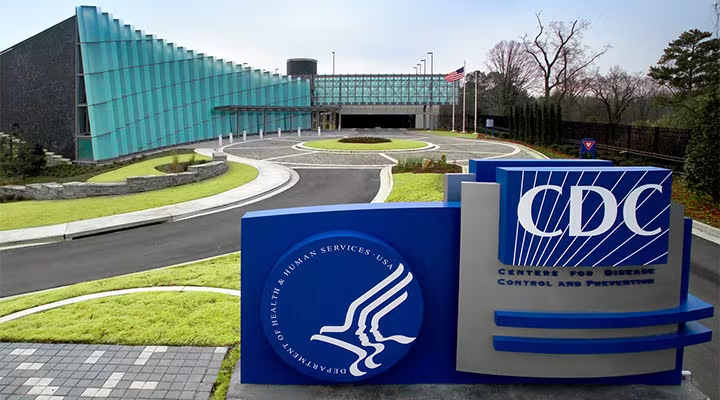Computational Genomics is a dynamic field that marries cutting-edge technologies with biological insights, aiming to understand biological DNA more deeply. With computational tools and algorithms as guides, computational genomics explore the vast landscape of genomic data, uncovering patterns, identifying genetic variations, and shed light on the fundamental mechanisms that govern life.
In this blog we will explore role of data science in computational genomics, and learn about which real-world computational genomic projects are leading way to new discoveries.
Also learn about 6 Top USA Medical AI Companies Transforming Healthcare here
The Interplay between Computational Genomics and Data Science
Bridging the Gap between Biology and Big Data
In an era dominated by vast amounts of genomic data, the intersection of Computational Genomics and Data Science emerges as a powerful catalyst for scientific discovery. Data Science techniques such as machine learning and statistical analysis play a pivotal role in extracting meaningful insights from complex genomic datasets, enabling researchers to identify patterns, predict gene functions, and uncover novel biological pathways.
Learn about Who Earns More in USA? Data Science vs Computer Science.
Moreover, the synergy between Computational Genomics and Data Science fuels the development of innovative tools and algorithms designed to tackle the inherent challenges of genomic data analysis, ranging from data preprocessing and quality control to variant calling and pathway analysis.
By harnessing the combined power of computational methodologies and data-driven approaches, scientists can unlock new frontiers in genomic research, paving the way for transformative breakthroughs in biomedicine and beyond.
Explore about Data-driven Healthcare Innovations, Challenges and Possible Solution in 2024
Exploring Real-World Applications of Computational Genomics
Shedding Light on Genetic Solutions
1. Personalized Medicine:
Pioneering Company: 23andMe
At the forefront of personalized medicine, 23andMe harnesses Computational Genomics to empower individuals with insights into their genetic predispositions to various health conditions. Through direct-to-consumer genetic testing services, 23andMe analyzes vast genomic datasets to provide personalized insights, enabling individuals to make informed decisions about their health and well-being.

For example, individuals can learn about their susceptibility to certain diseases such as Alzheimer’s or Parkinson’s, allowing for proactive healthcare planning and early intervention.
2. Crop Improvement:
Innovative Institute: International Rice Research Institute (IRRI)
In the agricultural domain, the International Rice Research Institute (IRRI) revolutionizes crop improvement through Computational Genomics. By sequencing the genomes of diverse rice varieties and applying advanced computational analyses, IRRI identifies genes associated with desirable traits such as drought tolerance, disease resistance, and high yield potential. These insights drive the development of genetically improved rice varieties tailored to specific environmental conditions and farming practices, thereby enhancing global food security and sustainability.

3. Cancer Genomics:
Pioneering Research Initiative: The Cancer Genome Atlas (TCGA)
In the fight against cancer, The Cancer Genome Atlas (TCGA) project epitomizes the transformative potential of Computational Genomics. Through systematic characterization of genetic alterations driving tumor initiation and progression across diverse cancer types, TCGA provides critical insights into cancer biology, guiding the development of precision oncology approaches and identifying potential therapeutic targets for personalized medicine interventions.
For instance, TCGA data has led to the discovery of specific genetic mutations driving certain cancer subtypes, facilitating the development of targeted therapies that improve patient outcomes and reduce side effects.
4. Microbiome Analysis:
Cutting-edge Research: Human Microbiome Project (HMP)
The Human Microbiome Project (HMP) is a landmark research initiative that employs Computational Genomics to understand human microbiome and its impact on health. By sequencing microbial DNA samples collected from various body sites across diverse populations, HMP generates comprehensive maps of microbial communities inhabiting the human body, shedding light on their composition, diversity, and functional roles. Through sophisticated bioinformatics analyses, HMP elucidates the intricate interplay between the microbiome and host physiology, offering insights into the role of microbial dysbiosis in disease pathogenesis and therapeutic interventions.
For instance, HMP data has been instrumental in understanding the gut microbiome’s role in conditions such as inflammatory bowel disease (IBD) and metabolic disorders, paving the way for targeted microbiome-based therapies and precision medicine approaches tailored to individual microbial profiles
5. Drug Discovery and Development:
Pioneering Institute: Broad Institute of MIT and Harvard
At the intersection of Computational Genomics and pharmaceutical research, the Broad Institute accelerates drug discovery and development. Through genomic screening initiatives and computational analyses, the Broad Institute elucidates disease-associated genes and pathways, facilitating the discovery of new drug targets and the development of clinically relevant therapies.
In addition to traditional drug development, Computational Genomics is increasingly used in the field of synthetic biology to engineer microorganisms capable of producing biofuels, bioplastics, and pharmaceutical compounds, offering sustainable solutions to global challenges in energy and healthcare.
6. Infectious Disease Genomics:
Leading Institution: Centers for Disease Control and Prevention (CDC)
In the realm of infectious disease control, Computational Genomics plays a crucial role in outbreak surveillance, pathogen identification, and vaccine development. By sequencing the genomes of infectious agents such as viruses and bacteria, organizations like the CDC can track the spread of diseases, identify transmission routes, and monitor the evolution of drug resistance.
Furthermore, Computational Genomics enables the rapid development of diagnostic tests and vaccines tailored to specific strains of pathogens, enhancing public health preparedness and response capabilities.

Conclusion: Embracing the Promise of Computational Genomics
In conclusion, Computational Genomics unlocks the potential of genomic data to drive transformative solutions across diverse industries, from healthcare and agriculture to environmental science and beyond. By harnessing the power of computational techniques and data analytics, this field empowers us to unravel the complexities of the genetic code, offering insights that shape the future of biomedicine, agriculture, and environmental sustainability.
Also read about Computational Biology vs Bioinformatics and their Integration with Biological Data Science
As we continue to explore the frontiers of Computational Genomics, fueled by advancements in technology and interdisciplinary collaborations, the possibilities for innovation and discovery are boundless.
Click here to know Top 10 Healthcare Data Scientist Employers in USA. How to make Stand-out Resume and Ace the Interview.



